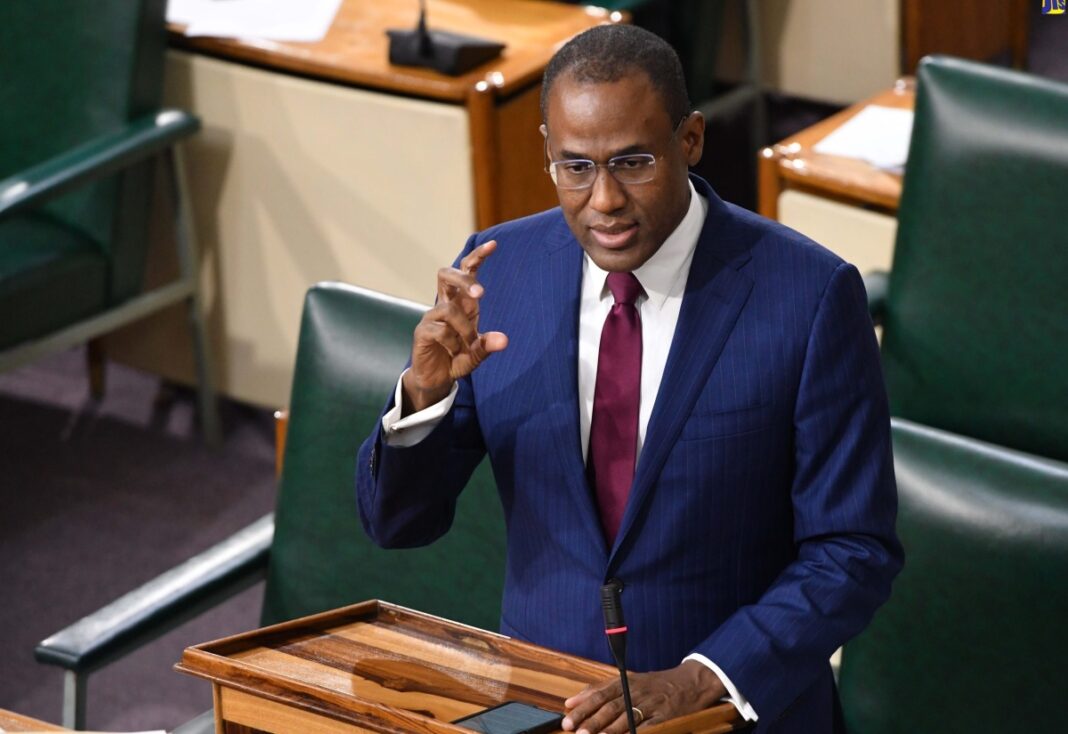The upgrading of Jamaica’s credit rating by Moody’s is another testament of the effectiveness of the Government’s policy framework in improving the country’s economic independence and creating an attractive environment for investment that supports jobs and growth.
Minister of Finance and the Public Service, Dr. the Hon. Nigel Clarke, in a statement welcoming the upgrading said, “our economic policy framework has been principled, unwavering and disciplined, even in the face of monumental adversity in the form of the COVID-19 pandemic.”
“Today, the Jamaican economy is stronger as a result. We must do everything to preserve and maintain these gains,” he added.
On Wednesday (October 18), international credit rating agency, Moody’s Investors Service, announced the upgrading of the Government’s long-term issuer and senior unsecured ratings from ‘B2’ to ‘B1’ and revised its outlook for the economy from ‘Stable’ to ‘Positive’.
A statement from the Ministry said Moody’s decision reflects the agency’s analysis that the Government maintained a steadfast commitment to sustainable fiscal policy anchored on Jamaica’s medium term debt target, in the face of various external shocks.
The agency cited the Government’s success in reversing Jamaica’s increased debt levels occasioned by the COVID-19 pandemic, and effecting fiscal policies that supported continued improvement in debt metrics.
Moody’s indicated that Jamaica’s debt ratio is now well below pre-pandemic levels, declining more than 30 percentage points to 78 per cent in 2022 from 110 per cent in 2020, and projected that this downward trajectory is expected to continue.
Additionally, Moody’s said the revised ‘Positive’ outlook reflects the Agency’s assessment that a sustained positive trajectory stemming from reforms undertaken to improve fiscal, monetary and economic policy effectiveness will continue to bolster Jamaica’s credit resilience.
In September, S&P indicated that its upgraded rating reflects the agency’s projections that Jamaica’s debt-to-GDP ratio will continue to decline, led by modest fiscal surpluses, over the medium-term.
S&P noted that while the Government’s interest burden “remains high”, it is anticipated that this will fall to 17.5 per cent of revenues within the next fiscal year and to less than 15 per cent come 2026.
The ratings agency also foresees continued economic growth, which is expected to support external balances over the next four years.
Meanwhile Fitch highlighted factors driving its ‘B+’ ratings.
These include Jamaica’s favourable business climate, consistent fiscal policy efforts to lower the debt burden, and continued deficit reduction bolstered by a 15.4 percent growth in revenues between April and December 2021.
Additionally, the agency cited healthy reserves underpinned by strong growth in remittances, resulting in gross international reserves increasing to US$4.8 billion at the end of fiscal year 2020/21.
Fitch pointed out that measured refinancing of debt will continue to lower debt service costs.





